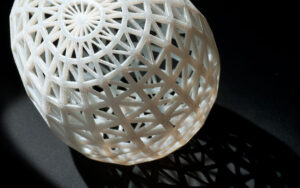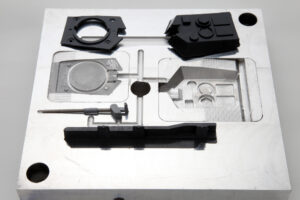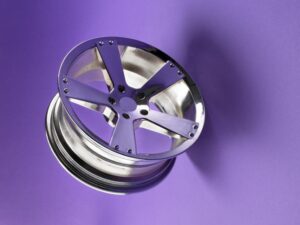The reason for ANOVA is to test for critical contrasts between implies [StatSoft07]. All in all, ANOVA is a method that can be utilized by rapid prototyping suppliers china to test the speculation that the methods among at least two gatherings are equivalent, under the supposition that the examined populaces are ordinarily conveyed. What’s more, it additionally expects that the difference is equivalent and blunder is autonomous and indistinguishably regularly appropriated too. In the event that this is disregarded, it affects the intensity of the F-test measurement. Notwithstanding, it is genuinely hearty to gentle takeoffs from each of the three suppositions. On the off chance that there is a huge difference, the comparing factor has an impact all the while. In measurements, ANOVA is an assortment of factual models and their related strategies, which analyze implies by parting the in general noticed fluctuation into various parts. The central procedure is a dividing of the complete amount of squares into segments identified with the impacts in the model utilized. ANOVA, here and there called a F-test, is firmly identified with the t-test. The significant distinction is that, where the 1-test gauges the contrast between the methods for two gatherings, an ANOVA tests the contrast between the methods for at least two gatherings. The benefit of china cnc prototyping service suppliers utilizing ANOVA as opposed to different t-tests is that it decreases the likelihood of mistake, and is more eficient for more intricate cases.
The F-dispersion is a right-slanted appropriation utilized most generally in ANOVA. The F-test or F-proportion is a general trial of the invalid theory that gathering implies on the reliant variable don’t vary. The rationale of the F-test is that the bigger the proportion of between-bunches fluctuation (a proportion of impact) to inside gatherings difference (a proportion of commotion), the more outlandish that the invalid theory is valid. When the F-proportion is acquired, one can move it to different appropriations, for example, P-esteem (likelihood worth) or certainty spans, with the levels of-opportunities of the numerator and denominator. The P-estimation of a measurable theory test is the likelihood of getting an estimation of the test measurement as extraordinary as or more outrageous than that saw by chance alone, if the invalid speculation is valid. It is equivalent to the criticalness level of the test for which one would just barely dismiss the invalid speculation. The P-esteem is contrasted and the real criticalness level of our test and, on the off chance that it is more modest, the outcome is huge. That is, if the invalid speculation were to be dismissed at the 5% criticalness level, this would be accounted for asp < 0.05. There are tables accessible for change of F-conveyance to P-esteem. Such disseminations are recorded in Appendix A. The correct tail region is given for the sake of the table, for instance as hatchet = 0.05. The F-appropriation change is likewise accessible utilizing Excel as talked about in china precision plastic machined parts factory and china precision steel machining parts factory .
A single direction ANOVA tests the contrasts between bunches that are just arranged on one free factor [Fowlkes98]. The accompanying model is utilized by high quality rapid prototypes to delineate the terms and the ANOVA method. This article is from https://www.precisiontype.com


